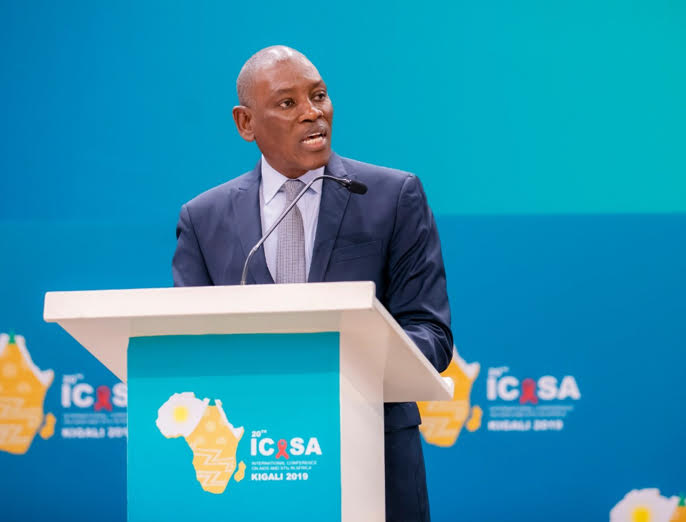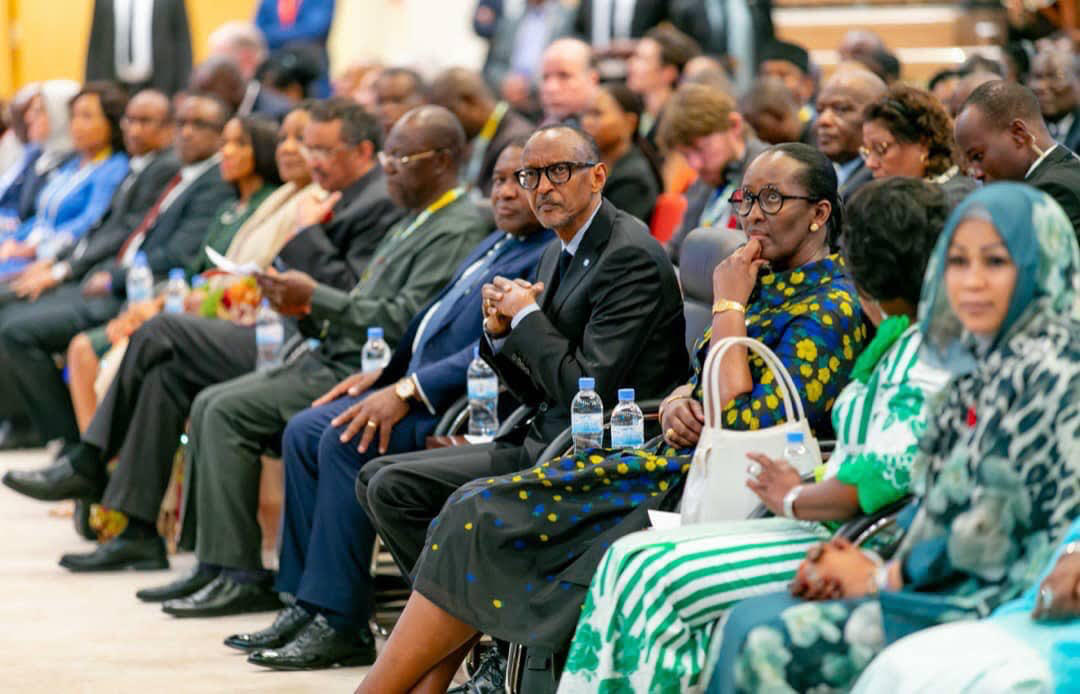The 2019 edition of the International Conference on AIDS and Sexually Transmitted Infections in Africa, (ICASA 2019), ended in Kigali, Rwanda with a commitment by the United Nations Population Fund (UNFPA) to strengthen its leadership role in the Global HIV Prevention Coalition as a co-convener.

Addressing delegates at the end of the five-day conference on behalf of UNFPA Executive, UNFPA Regional Director for West and Central Africa, Mabingue Ngom, expressed UNFPA’s commitment to continue strengthening the partnership as the organisation seeks solutions to end AIDS in Africa.
We believe that it’s only through genuine partnership and effective collaboration that we can together end the epidemic.” Mabingue Ngom reiterated. The event held from 2 to 7 December 2019, at the Kigali Convention Central, Rwanda, was attended by over 8,200 delegates from 521 countries.
One of the satellite sessions was dedicated to ensuring that people with disabilities have access to sexual and reproductive health services and prevention against HIV/AIDS, and gender-based violence. It was co-hosted by UNFPA’s Regional Offices for East and Southern Africa, and West and Central Africa with the sponsorship of the MUSKOKA French Fund.
As part of an inclusive approach, the session was open to people with disabilities, decision-makers, development partners, programme managers, experts, resource persons and all other conference participants.
At the opening of the conference, President Paul Kagamé of Rwanda noted that, "Good politics and Governance have everything to do with health,” and that “there is no substitute for building an inclusive, caring society.".
According to a WHO and World Bank publication (2011), more than one billion people in the world live with some form of disability, making it the most significant minority. In addition, 80% of them live in countries with limited resources. Besides, people with disabilities are extremely vulnerable to HIV infection because they are more affected by poverty and physical and sexual violence, and have less access to health education programmes (UNAIDS, 2015).
UNFPA, in collaboration with its partners, was seeking to shed light on the sexual and reproductive health (SRH) needs and vulnerabilities of people with disabilities. The overall objective of the session was to create a space for exchange between people with disabilities, associations working with them, decision-makers and ICASA participants.
In his closing remarks, Mabingue Ngom thanked the leadership of Rwanda for hosting the conference as well as the stewardship of Society for #AIDS in Africa. He reassured the UN’s sustained partnership and collaboration.



